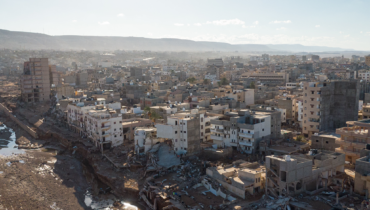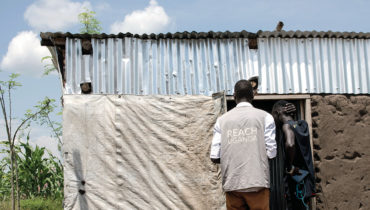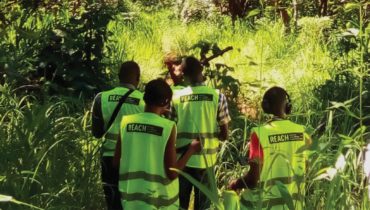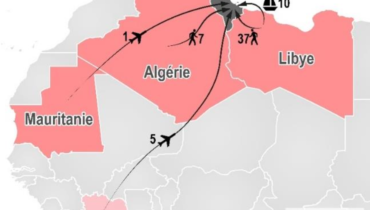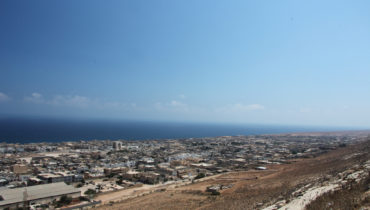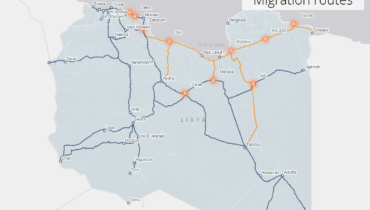Libya: Inter-communal clashes in Sebha lead to displacement and service disruption
24 October 2018
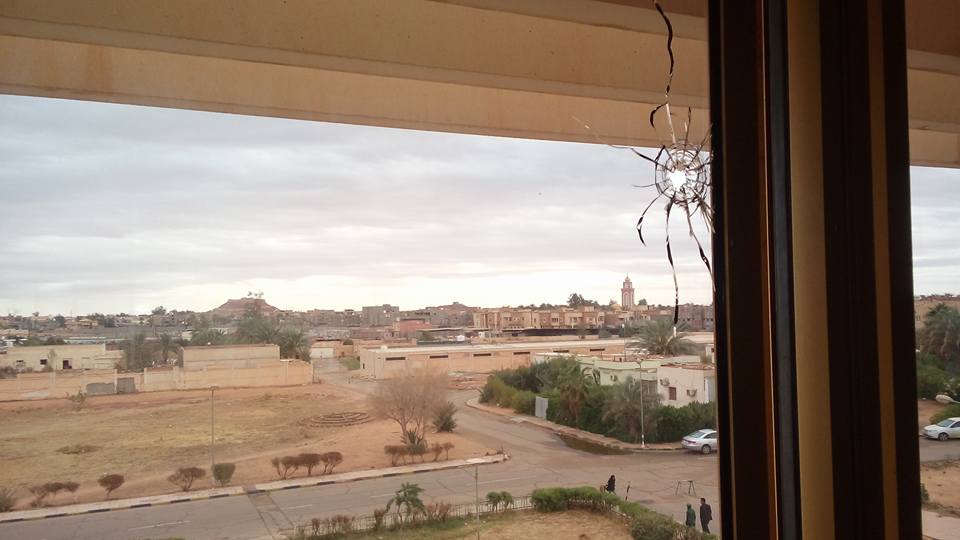
A bullet hit a window at the Sebha Medical Centre amid clashes in the city. © Sebha Medical Centre, 2018
Since late January 2018, the southern Libyan city of Sebha has been subject to inter-communal violence between the Tebu and Awlad Suleiman communities, which has escalated throughout the month of March. These clashes have mainly affected Sebha’s southern and eastern neighbourhoods, displacing up to 870 households to the safer western side of the city and placing those who have remained in danger.
To inform humanitarian response plans regarding the situation in Sebha, REACH conducted a rapid assessment on behalf of the Libya Inter-Sector Coordination Group (ISCG) to provide a snapshot of needs among recently displaced IDPs. Between 23 and 26 March, with data collection support from Lifemakers, REACH assessed the humanitarian situation in 8 of the 13 mahallas of Sebha city, focusing on those that had received substantial numbers of IDPs. Data was collected through 16 multi-sector key informant (KI) interviews with community leaders, NGO staff and others, as well as through 5 supplementary interviews with medical professionals in Sebha and Taraghin.
At the time of data collection, the majority of IDPs had been displaced to five western neighbourhoods of Sebha. Many of these IDPs had initially been housed in public schools, but have since been removed to enable the schools to reopen for the current semester; however, most of these schools still remain closed due to insecurity. At the time of data collection, about half of IDPs in all assessed neighbourhoods were renting their own accommodation, with an additional 35-45% living in camps or informal settlements.
Though markets were functional and physically accessible to all households, hard cash in the form of Libyan dinars was almost universally unavailable for withdrawal, due to the ongoing liquidity crisis affecting all areas of Libya. Health facilities, too, remained operational in all assessed neighbourhoods, though KIs frequently reported shortages of medicines to treat chronic diseases. Injuries and casualties from explosive hazards were reported in conflict-affected neighbourhoods and in others close to the frontlines.
Should clashes persist or escalate further in the city of Sebha, REACH will continue to monitor the situation on behalf of the ISCG to further inform humanitarian planning.
Please find here the REACH Sebha Rapid Situation Overview.


